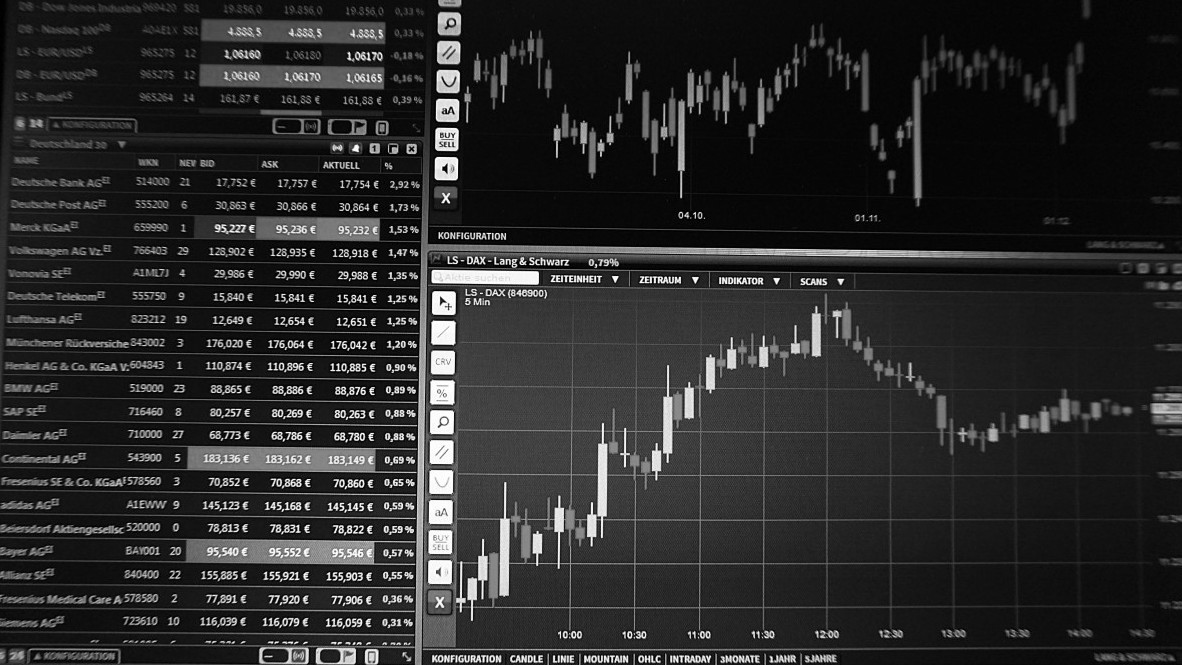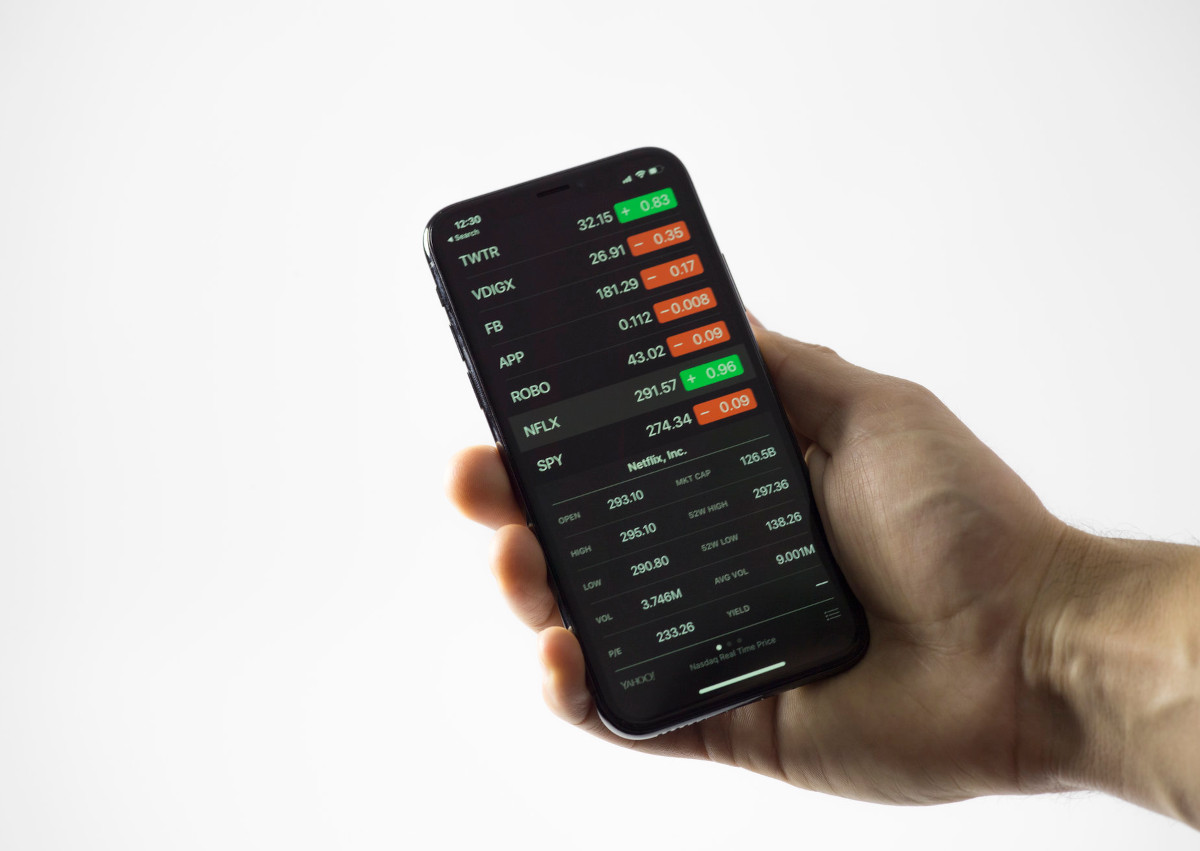(VIANEWS) – Blackrock Muni Intermediate Duration Fund (MUI), PCM Fund (PCM), Penns Woods Bancorp (PWOD) are the highest payout ratio stocks on this list.
We have collected information concerning stocks with the highest payout ratio up until now. The payout ratio in itself isn’t a guarantee of good investment but it’s an indicator of whether dividends are being paid and how the company chooses to distribute them.
When investigating a potential investment, the dividend payout ratio is a good statistic to know so here are a few stocks with an above 30% percent payout ratio.
1. Blackrock Muni Intermediate Duration Fund (MUI)
743.33% Payout Ratio
BlackRock Muni Intermediate Duration Fund, Inc. is a closed ended fixed income mutual fund launched by BlackRock, Inc. It is managed by BlackRock Advisors, LLC. The fund invests in fixed income markets. It primarily invests in investment grade municipal bonds exempt from federal income taxes and with a duration of three to ten years at the time of investment. BlackRock Muni Intermediate Duration Fund, Inc. was formed on August 1, 2003 and is domiciled in United States.
Earnings Per Share
As for profitability, Blackrock Muni Intermediate Duration Fund has a trailing twelve months EPS of $0.06.
PE Ratio
Blackrock Muni Intermediate Duration Fund has a trailing twelve months price to earnings ratio of 201.17. Meaning, the purchaser of the share is investing $201.17 for every dollar of annual earnings.
The company’s return on equity, which measures the profitability of a business relative to shareholder’s equity, for the twelve trailing months is 0.27%.
Yearly Top and Bottom Value
Blackrock Muni Intermediate Duration Fund’s stock is valued at $12.07 at 08:23 EST, under its 52-week high of $12.09 and way higher than its 52-week low of $9.73.
2. PCM Fund (PCM)
200% Payout Ratio
PCM Fund Inc. is a closed ended fixed income mutual fund launched and managed by Allianz Global Investors Fund Management LLC. The fund is co-managed by Pacific Investment Management Company LLC. It seeks to invest in fixed income markets. The fund invests primarily in commercial mortgage-backed securities. It employs fundamental analysis with a focus on top down stock picking approach to create its portfolio. The fund benchmarks the performance of its portfolio against Barclay's CMBS Investment Grade Index. PCM Fund Inc was formed on September 2, 1993 and is domiciled in the United States.
Earnings Per Share
As for profitability, PCM Fund has a trailing twelve months EPS of $0.48.
PE Ratio
PCM Fund has a trailing twelve months price to earnings ratio of 17.1. Meaning, the purchaser of the share is investing $17.1 for every dollar of annual earnings.
The company’s return on equity, which measures the profitability of a business relative to shareholder’s equity, for the twelve trailing months is 6.77%.
Yearly Top and Bottom Value
PCM Fund’s stock is valued at $8.21 at 08:23 EST, way below its 52-week high of $10.20 and way higher than its 52-week low of $6.88.
Dividend Yield
As claimed by Morningstar, Inc., the next dividend payment is on Mar 8, 2024, the estimated forward annual dividend rate is 0.96 and the estimated forward annual dividend yield is 11.61%.
3. Penns Woods Bancorp (PWOD)
54.7% Payout Ratio
Penns Woods Bancorp, Inc. operates as the bank holding company for Jersey Shore State Bank and Luzerne Bank, which provides commercial and retail banking services to individuals, partnerships, non-profit organizations, and corporations. It accepts time, demand, and savings deposits, including super NOW accounts, statement savings accounts, money market accounts, and certificates of deposit, as well as checking and individual retirement accounts. The company also offers loan products comprising residential, commercial, and construction real estate loans; agricultural loans for the purchase or improvement of real estate; commercial loans for the acquisition and improvement of real estate, purchase of equipment, and working capital purposes; letters of credit; consumer loans, such as construction and residential mortgages, home equity loans and lines, automobile financing, personal loans and lines of credit, and overdraft and check lines; and revolving credit loans with overdraft protection. In addition, it provides securities brokerage and financial planning services, which include the sale of life insurance products, annuities, and estate planning services; property and casualty, and auto insurance products; safe deposit services; ATM services; and Internet and telephone banking services. Further, the company engages in real estate transactions and investment activities. It operates through a network of twenty-seven offices located in Clinton, Lycoming, Centre, Montour, Union, Blair, and Luzerne Counties, Pennsylvania. The company was founded in 1907 and is headquartered in Williamsport, Pennsylvania.
Earnings Per Share
As for profitability, Penns Woods Bancorp has a trailing twelve months EPS of $2.34.
PE Ratio
Penns Woods Bancorp has a trailing twelve months price to earnings ratio of 7.99. Meaning, the purchaser of the share is investing $7.99 for every dollar of annual earnings.
The company’s return on equity, which measures the profitability of a business relative to shareholder’s equity, for the twelve trailing months is 9.25%.
Dividend Yield
According to Morningstar, Inc., the next dividend payment is on Mar 11, 2024, the estimated forward annual dividend rate is 1.28 and the estimated forward annual dividend yield is 6.84%.
Yearly Top and Bottom Value
Penns Woods Bancorp’s stock is valued at $18.70 at 08:23 EST, way under its 52-week high of $27.59 and above its 52-week low of $18.02.
4. Cass Information Systems (CASS)
53.67% Payout Ratio
Cass Information Systems, Inc. provides payment and information processing services to manufacturing, distribution, and retail enterprises in the United States. It operates through two segments, Information Services and Banking Services. The company's services include freight invoice rating, payment processing, auditing, and the generation of accounting and transportation information. It also processes and pays facility-related invoices, such as electricity, gas, waste, and telecommunications expenses; and provides telecom expense management solutions. In addition, the company, through its banking subsidiary, Cass Commercial Bank, provides a range of banking products and services, such as checking, savings, and time deposit accounts; commercial, industrial, and real estate loans; and cash management services to privately-owned businesses and faith-related ministries. Further, it provides B2B payment platform for clients that require an agile fintech partner. It operates through its banking facility near downtown St. Louis, Missouri; operating branch in the Bridgeton, Missouri; and leased facilities in Fenton, Missouri and Colorado Springs, Colorado. The company was formerly known as Cass Commercial Corporation and changed its name to Cass Information Systems, Inc. in January 2001. Cass Information Systems, Inc. was founded in 1906 and is headquartered in St. Louis, Missouri.
Earnings Per Share
As for profitability, Cass Information Systems has a trailing twelve months EPS of $2.18.
PE Ratio
Cass Information Systems has a trailing twelve months price to earnings ratio of 21.43. Meaning, the purchaser of the share is investing $21.43 for every dollar of annual earnings.
The company’s return on equity, which measures the profitability of a business relative to shareholder’s equity, for the twelve trailing months is 13.78%.
Dividend Yield
As stated by Morningstar, Inc., the next dividend payment is on Mar 4, 2024, the estimated forward annual dividend rate is 1.2 and the estimated forward annual dividend yield is 2.55%.
Growth Estimates Quarters
The company’s growth estimates for the ongoing quarter and the next is 15.7% and 32.7%, respectively.
Previous days news about Cass Information Systems (CASS)
- According to Zacks on Monday, 1 April, "There are several stocks that passed through the screen and Cass Information Systems (CASS Quick QuoteCASS – Free Report) is one of them. "
5. Public Service Enterprise Group (PEG)
44.44% Payout Ratio
Public Service Enterprise Group Incorporated, through its subsidiaries, operates in electric and gas utility business in the United States. It operates through PSE&G and PSEG Power segments. The PSE&G segment transmits electricity; distributes electricity and natural gas to residential, commercial, and industrial customers; and appliance services and repairs to customers through its service territory, as well as invests in solar generation projects, and energy efficiency and related programs. The PSEG Power segment engages in nuclear generation businesses; and supplies power and natural gas to nuclear power plants and gas storage facilities activities. As of December 31, 2023, it had electric transmission and distribution system of 25,000 circuit miles and 866,600 poles; 56 switching stations with an installed capacity of 39,953 megavolt-amperes (MVA), and 235 substations with an installed capacity of 10,382 MVA; 109 MVA aggregate installed capacity for substations; four electric distribution headquarters and five electric sub-headquarters; 18,000 miles of gas mains, 12 gas distribution headquarters, two sub-headquarters, and one meter shop, as well as 56 natural gas metering and regulating stations; and 158 MegaWatts defined conditions of installed PV solar capacity. Public Service Enterprise Group Incorporated was founded in 1903 and is based in Newark, New Jersey.
Earnings Per Share
As for profitability, Public Service Enterprise Group has a trailing twelve months EPS of $5.13.
PE Ratio
Public Service Enterprise Group has a trailing twelve months price to earnings ratio of 12.99. Meaning, the purchaser of the share is investing $12.99 for every dollar of annual earnings.
The company’s return on equity, which measures the profitability of a business relative to shareholder’s equity, for the twelve trailing months is 17.55%.
6. AG Mortgage Investment Trust (MITT)
42.86% Payout Ratio
AG Mortgage Investment Trust, Inc. operates as a residential mortgage real estate investment trust in the United States. Its investment portfolio comprises residential investments, including non-agency loans, agency-eligible loans, re-and non-performing loans, and non-agency residential mortgage-backed securities. The company qualifies as a real estate investment trust for federal income tax purposes. It generally would not be subject to federal corporate income taxes if it distributes at least 90% of its taxable income to its stockholders. The company was incorporated in 2011 and is based in New York, New York.
Earnings Per Share
As for profitability, AG Mortgage Investment Trust has a trailing twelve months EPS of $1.68.
PE Ratio
AG Mortgage Investment Trust has a trailing twelve months price to earnings ratio of 3.46. Meaning, the purchaser of the share is investing $3.46 for every dollar of annual earnings.
The company’s return on equity, which measures the profitability of a business relative to shareholder’s equity, for the twelve trailing months is 10.85%.
Yearly Top and Bottom Value
AG Mortgage Investment Trust’s stock is valued at $5.81 at 08:23 EST, way below its 52-week high of $6.89 and way above its 52-week low of $4.82.
Sales Growth
AG Mortgage Investment Trust’s sales growth for the next quarter is 2%.
Revenue Growth
Year-on-year quarterly revenue growth declined by 23.9%, now sitting on 63.66M for the twelve trailing months.
Dividend Yield
According to Morningstar, Inc., the next dividend payment is on Mar 27, 2024, the estimated forward annual dividend rate is 0.36 and the estimated forward annual dividend yield is 6.2%.
1. 1 (1)
1% Payout Ratio
1
Earnings Per Share
As for profitability, 1 has a trailing twelve months EPS of $1.
PE Ratio
1 has a trailing twelve months price to earnings ratio of 1. Meaning, the purchaser of the share is investing $1 for every dollar of annual earnings.
The company’s return on equity, which measures the profitability of a business relative to shareholder’s equity, for the twelve trailing months is 1%.











